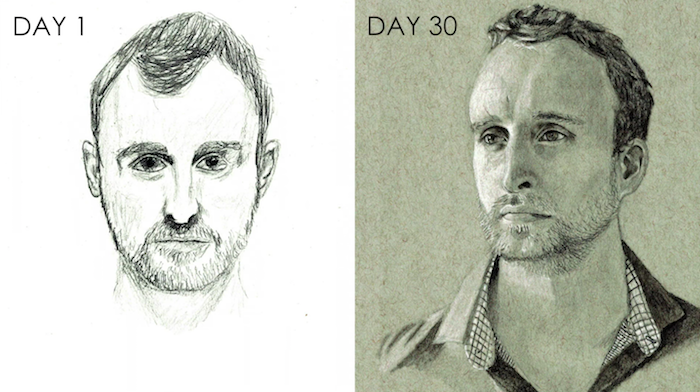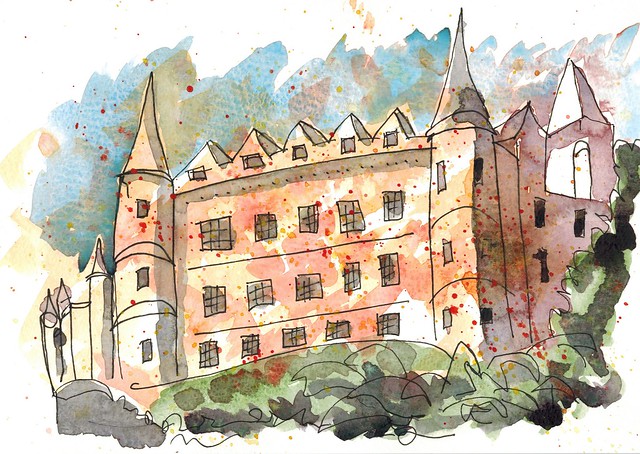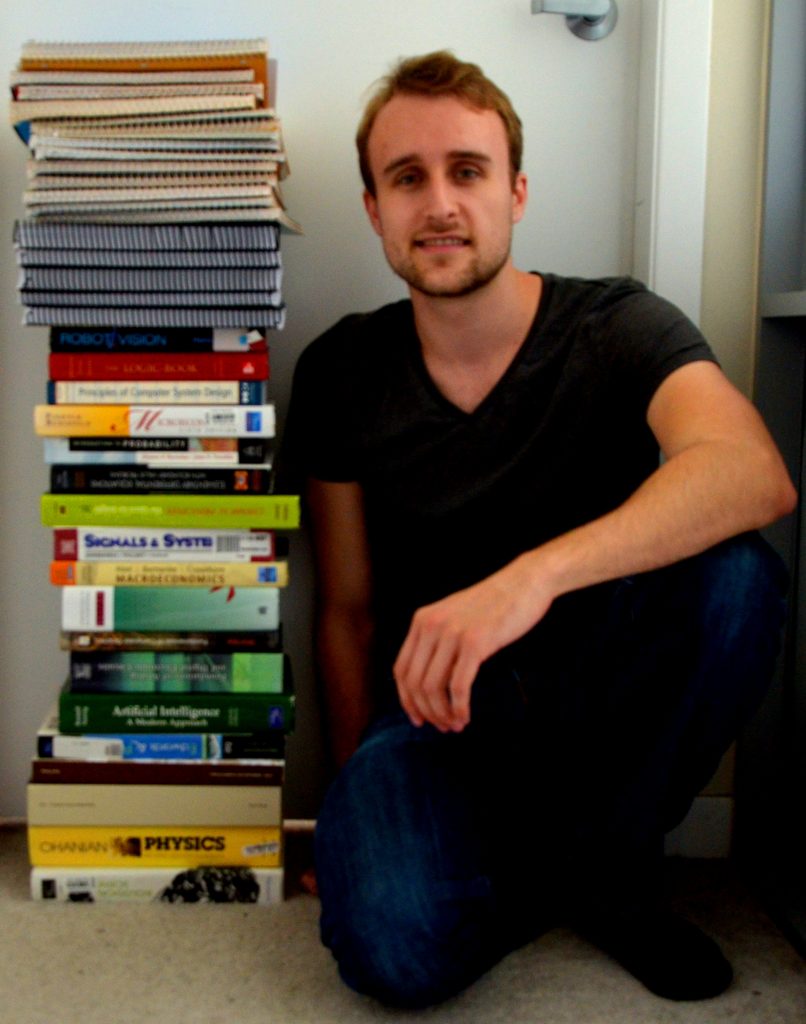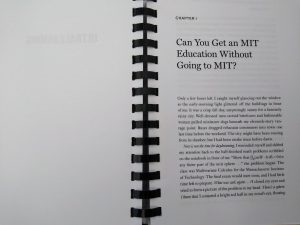How to Learn Something New: An In-Depth Review of “Ultralearning” by Scott H. Young
What is Ultralearning?
Ultralearning is “a strategy for acquiring skills and knowledge that is both self-directed and intense” devised by rapid learner Scott Young.
- what it’s for:
- Optimising memory, vocabulary retention, rule learning
- languages:
- Relevant to All Languages
- level:
- Beginner - Advanced
+ PROS
- Versatile system
- Real-world examples and case studies
- Engaging storytelling
- Strategies and tactics are broken down into actionable steps
- CONS
- Requires an investment of time
- Requires a lot of practice
Do you enjoy learning something new?
I do — yet until recently I'd never really asked the question of how to learn. What are the best learning methods?
Maybe you're like me. I like to push myself and learn new things. If that's you too, then read on.
In my 20s and 30s I've taken on learning projects around:
- Drawing:
- Basic html coding
- Blogging
- Dog training:
- Languages
- Storytelling
Some of these projects have been a success — others I dropped without much progress. Some I keep returning to, others were one time projects that moved me forward in a particular skill.
The point is, I'm a serial learner. I've done plenty of self-directed learning projects.
So when I found out about Scott H. Young's book Ultralearning: Master Hard Skills, Outsmart the Competition and Accelerate Your Career I was curious to read it.
But I was also skeptical.
On the one hand, I was aware of Scott's achievements (more on those in a moment) and I felt that Scott has learning superpowers that he couldn't possibly teach me.
On the other hand, I felt I knew a lot about learning new things. What could a book about DIY learning possibly teach me?
As it turns out, a lot.
Here's the story of how I became a better learner.
Meet Scott H. Young — He Learned 4 Languages in One Year
I should start by saying that Scott H. Young is someone I've long admired.
I first discovered Scott's writing back when I was obsessively reading blogs in 2007, and he's been on my radar ever since then. I was excited to meet him in person a couple of years ago through my work here at Fluent in 3 Months. Benny Lewis, the founder of this blog, is good friends with Scott and I met Scott in Ireland where we were both visiting Benny.
What impresses me about Scott is that he gets results.
He started blogging in his teens. He built up a successful blog through his clear, engaging writing style, and his ability to network with other bloggers.
But it was Scott's learning missions that really impressed me. In his ultralearning missions, Scott has:
- Taught himself the entire four-year MIT computer science curriculum in just 12 months.
- Learned four languages in one year (Spanish, Portuguese, Chinese and Korean) to a solid conversational level, spending just 3 months on each language.
- Taught himself to draw realistic portraits in just 30 days.
I admire Scott's ability to learn. Yet even though I read his blog posts where he shared how he completed these projects, I still felt like he had a learning superpower that was out of my grasp.
Scott asked if I'd review his new book called Ultralearning: Master Hard Skills, Outsmart the Competition and Accelerate Your Career. Of course I said yes. I wanted to find the secret of his superpower!
I receiveda bound manuscript received from Scott's publisher so I could read it before publication.
I felt a buzz of excitement as I opened the first page.
Ultralearning is All About How to Learn New Things Faster
Let's start with what Scott means by ultralearning.
Scott says that ultralearning is:
A strategy for acquiring skills and knowledge that is both self-directed and intense.
In other words, ultralearning is not about dabbling in new things here and there. That's what I've typically done when I want to learn something new.
Ultralearning means:
- Choosing a specific thing you want to learn.
- Coming up with a strategy for learning that thing.
- Putting your strategy into practice. Often in an intense way — such as how Scott learned four new languages in a year.
According to Scott, ultralearning is a skill you can acquire. Once you have this skill, you'll be able to develop smart and fast strategies for learning anything. You'll also have more confidence in your ability to pick up new skills
To put it another way, once you have this skill — you're set for life.
Scott says that ultralearning can help you:
- Accelerate the career you have
- Transition to a new career
- Cultivate a hidden advantage in a competitive world
- Find new confidence
- Change how you see yourself. You become aware that you might be able to do things that you couldn't do before
With all those big promises, I was excited to find out what new skills I could learn if I put ultralearning into practice.
What New Skills Can You Ultralearn?
Here are a few skills or areas of knowledge that are mentioned in Scott's book:
- A new musical instrument
- How to cook a specific style of food (Mexican, Indian, Italian)
- Photography
- Creative writing
- A new language
- Computer programming
- Public speaking
- Medicine
- Design
- Building a blog or website
- Yoga
- Military history
- Chess
- Drawing
- Quiz Trivia / General Knowledge
You can use ultra learning to learn almost any skill or area of knowledge. You can use it for self-directed learning, or alongside a structured course at a university or college.
And Scott actually gets super specific with his examples.
This Guy Won $77,000 in a Single Day on the Quiz Show Jeopardy Was an Ultralearner:
What pulled me through the book is Scott's skill as a storyteller. Ultralearning is not a dry summary of learning techniques. Scott follows the fortunes of ultra learners as they take on huge learning feats.
These are ultralearners such as:
- Tristan de Montebello — who was coached by Scott using the techniques Scott shares in his book. In 7 months, Tristan went from no public speaking experience to the finals of the World Championship of Public Speaking.
- Benny Lewis (founder of this blog!) — who went from beginner German speaker to fluent German speaker in just 3 months.
- Roger Alan Craig — who holds the record for the highest single day winnings on the quiz show Jeopardy — $77,000. Craig actually ended up wining over $200,000 during his first week on the show. This was after he followed a specific strategy to memorise quiz trivia.
- Nigel Richards — who won the World Scrabble Championships in French despite not speaking the language, and spending only nine weeks preparing.
Here's what makes the book shine:
Scott doesn't just share what these (and many other) ultralearners achieved. He shares how they achieved it — the specific strategies and tactics they used to achieve their learning goal.
Scott had to dig deep to find these. He writes:
My research efforts frequently involved scouring a five-hundred-page biography for the several paragraphs in which concrete details about learning methods were mentioned in passing.
Scott not only shares these strategies and tactics — he breaks them down into actionable steps, so they can be applied to other learning goals.
You're probably wondering “how does ultralearning work?”
I'll share how I applied it so you can see for yourself.
How I Learned to Mix Lofi Music in Just 2 Weeks
To put Scott's strategies into action, I decided to take on a new ultra learning project. I enjoy lofi hip hip — I find it helps me focus when I'm working — and I wanted to create my own lofi hip hop track.
I once tried music production as a teenager. After one song I gave up, because I wasn't completely happy with the results. This time I wanted to dig deeper. I knew I couldn't create the perfect song, but I wanted to create one I felt good about.
In his book, Scott shares nine principles of ultra learning. There were three I found particularly helpful in my music project — metalearning, directness and drilling.
Metalearning — Learning How to Learn
Metalearning is about discovering effective ways to reach your learning goal. You can do this by reading online forums, books, or asking other learners. Scott recommends spending 10% of the time you've dedicated to your learning project to metalearning.
As part of this, and through the learning process, Scott encourages you to have the courage to ask “dumb” questions. The idea is that by asking seemingly obvious questions, you'll discover things you weren't even aware you should be considering. Scott drew inspiration for this “dumb questions” technique from Nobel Prize Winning physicist Richard Feynman, who said:
“Some people think in the beginning that I'm kind of slow and I don't understand the problem, because I ask a lot of these ‘dumb' questions.”
For my own metalearning, I read a ton of online articles and forums. I tried out different tools and apps for making music. And I asked a friend who's an experienced musician and music producer about the process he uses to make music. This was especially helpful, as it opened my eyes to aspects of music production I wasn't even aware of.
Through metalearning I discovered the:
- Best music production tool for me, that I could learn quickly. Plus the essentials of how to use it.
- Basic structure of a lofi song.
- Elements and layers that make up a lofi song.
- Techniques for sampling to build a track of music.
- Production techniques that give a lofi sound.
Once I knew this, I was ready to start making music.
Directness — Learn by Doing
Directness is about learning by doing, rather than learning by studying or reading. Once you've done your metalearning then you just get on and practice the skill you want to learn.
Do you want to speak Spanish in Latin America? Then speak Spanish, with Latin Americans. Do you want to learn how to draw in charcoal? The start drawing, in charcoal. Do you want to understand ancient history? Then start writing articles — or even a book — about ancient history. As far as possible, practice your new skill in a real world environment that's as close as possible to your learning goal.
Once I'd decided the best music production software for me, and read about how to create lofi songs, I just got started with making music.
Yes, some of what I did to start with was bad. Really bad. But that made me determined to work out where I'd made mistakes. As I discovered and analysed mistakes, I learned how to improve.
Drill — Focus on Your Weak Points
In previous learning projects, when I've had a weak point, I tend to ignore it or work around it, rather than work to improve it.
Making sure I focus on my weak points is the biggest change I'm going to make as a result of reading Ultralearning.
Scott calls this approach drilling. To drill, you break down the skill you want to learn into specific components. Then you create drills to work on the areas where you're weakest, the bottlenecks that are holding you back.
In my project to create lofi music, I quickly discovered a number of weak points.
One weak point was creating drum loops. To begin with, I followed my usual approach. I ignored it and focused on other aspects of music production. I used ready-made drum loops.
But I wanted to find a way to address this. So I have started “drilling” drum loops by downloading a drum machine to my phone. This means I can play around creating drum loops whenever I have a few spare moments.
For each of the nine ultralearning princples, Scott provides specific tactics you can apply to your own learning project.
One drilling tactic I found particularly useful in making music is the Copycat Method, which Scott learned from Benjamin Franklin.
To improve his writing skills, Benjamin Franklin would break down articles from his favourite magazine into an outline. Then he'd attempt to write the article himself from that outline. After he'd finished, he compared his attempt with the original. That way he could see the areas of his writing he needed to improve.
In my lofi music project, I've found it helpful to break down songs I like into their component parts — drum loops, bass line, melody, chords, extra effects, overall arrangement. I've used what I found to build my own music.
Yes, I Really Made a Song
I was actually pretty happy with my results. It's not perfect, and I've still got a lot to learn. But here's a lofi song I mixed after less than two weeks of learning using Scott's ultralearning tactics:
There are dozens of tactics provided in Ultralearning. Depending on what you want to learn, some will be more useful than others.
That's one of the things I really liked about Ultralearning — you can build your own learning method using the tools Scott provides.
In Summary: Here's What I Learned from Ultralearning
Ultralearning is a skill you can develop. Anyone can get smarter at learning new things when they apply this skill.
From reading Ultralearning, I've addressed some of my own learning weaknesses and plan to use the following strategies in future learning projects.
- Work towards a specific goal. For example, rather than saying “I want to learn to draw” I'd get more specific and say “I want to learn how to draw faces.”
- Investigate how others learn. To give structure to my learning projects, I plan to spend time discovering how other people have learned the skill I want to learn. That means I'll have a roadmap for my learning.
- Push myself to go deep. Rather than working around my weak points, I want to identify them and address them.
Would I recommend Ultralearning? For anyone who is interested in learning new things, I recommend it. It's a book I'm planning to return to again and again — and it's one of my favourite works of non-fiction.
Do yourself a favour and pick up a copy of Ultralearning today.









Social